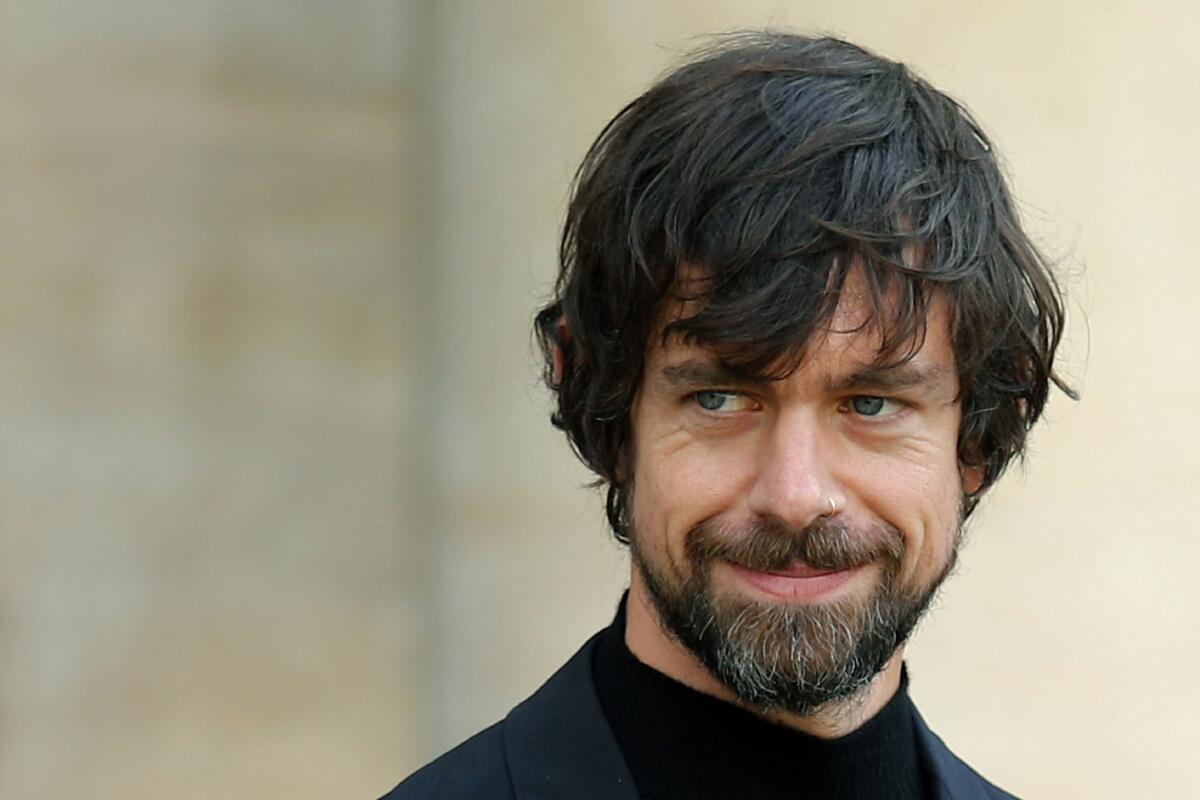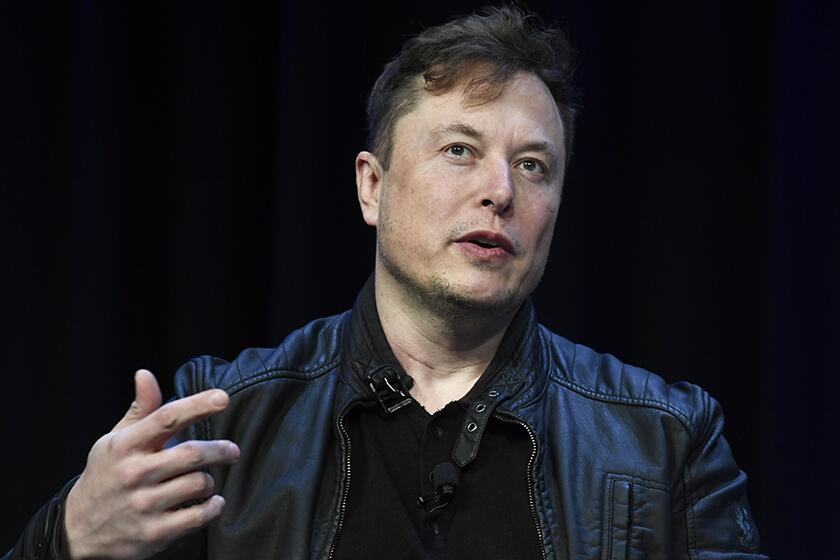Elon Musk subpoenas ally Jack Dorsey in Twitter buyout fight

- Share via
Elon Musk subpoenaed Jack Dorsey, co-founder of Twitter Inc. and his longtime friend, in his defense against the social media company’s lawsuit to make him complete his proposed $44-billion buyout.
Dorsey, who stepped down as Twitter’s chief executive last year, has been an energetic booster of Musk’s bid for the company, tweeting in April that Musk was the “singular solution I trust” to take over.
The subpoena follows a pair filed Friday for Kayvon Beykpour, former head of consumer product at Twitter, and Bruce Falck, formerly in charge of revenue product. The billionaire is rapidly marshaling documents and data to show that Twitter understated how much of its customer base is made up of spam and robot accounts.
Since the world’s richest person retreated from the purchase, dozens of people, banks and funds have been subpoenaed by both sides in the legal fight playing out in Delaware. The push to gather information and interview important figures in the deal comes ahead of an expedited schedule for the trial, slated to begin Oct. 17 and last five days.
Musk’s decision to subpoena Dorsey, who served two stints as CEO, is an interesting one given the duo’s history. The two executives, both big bitcoin supporters, have been friendly for years. Dorsey has praised Musk, describing him as a favorite influential tweeter, and invited him to Twitter to discuss product ideas.
In a Rolling Stone interview in early 2019, Dorsey said he “loved” Musk and what he was trying to do with Tesla Inc. and SpaceX. Musk even appeared at Twitter’s companywide retreat in early 2020 to speak with employees by video chat — during which he complained about Twitter’s bot problem.
More recently, the two have advocated for making Twitter’s software and content moderation decisions more transparent. After Musk became Twitter’s largest shareholder in late March, Dorsey was the first person at the company he called, according to a regulatory filing. Dorsey, who was still a Twitter director at the time, later encouraged Musk to join the board and spoke glowingly of him after the board agreed to sell Musk the company.
This month, the Tesla CEO accused Twitter of hiding the names of workers specifically responsible for evaluating the proportion of spam and robot accounts. Musk argues the company has failed to show that they make up fewer than 5% of its active users, as it has said in regulatory filings.
Twitter says it’s all a show to justify walking away from the deal.
The billionaire leader of Tesla and SpaceX says Twitter must go private to fulfill its “societal imperative.” But the way he went about offering to buy it left Wall Street doubting his seriousness.
Dorsey and Musk have their differences. Under Dorsey, Twitter permanently banned President Trump after the Capitol riot, although Dorsey delegated most of the moderation decisions to his legal deputy and later publicly questioned the ban. Musk has said he opposes “permanent bans” and would bring Trump back if he buys Twitter, although he hasn’t articulated a comprehensive content policy philosophy.
Dorsey stepped down as Twitter CEO to focus on Block, his payment processing company.
Beykpour was the top product executive at Twitter for years before he was unexpectedly dismissed by new Chief Executive Parag Agrawal. It was his team that was most directly responsible for expanding Twitter’s user base — and it is the quality of that base Musk has questioned in seeking to escape from the acquisition.
Beykpour joined Twitter in 2015 when the company acquired his live video app, Periscope, and quickly climbed the ranks under Dorsey. He was pushing Twitter into new product areas, such as live audio spaces and newsletters, before he was ousted.
The departures of Beykpour and Falck reflected Twitter’s state of limbo while it awaited a new owner, a state now intensified by the litigation. Meanwhile, a hiring freeze and other cost-cutting efforts have left some employees unsure of whether the projects or teams they are working on will be prioritized under new leadership.
Bloomberg writer Mark Bergen contributed to this report.







